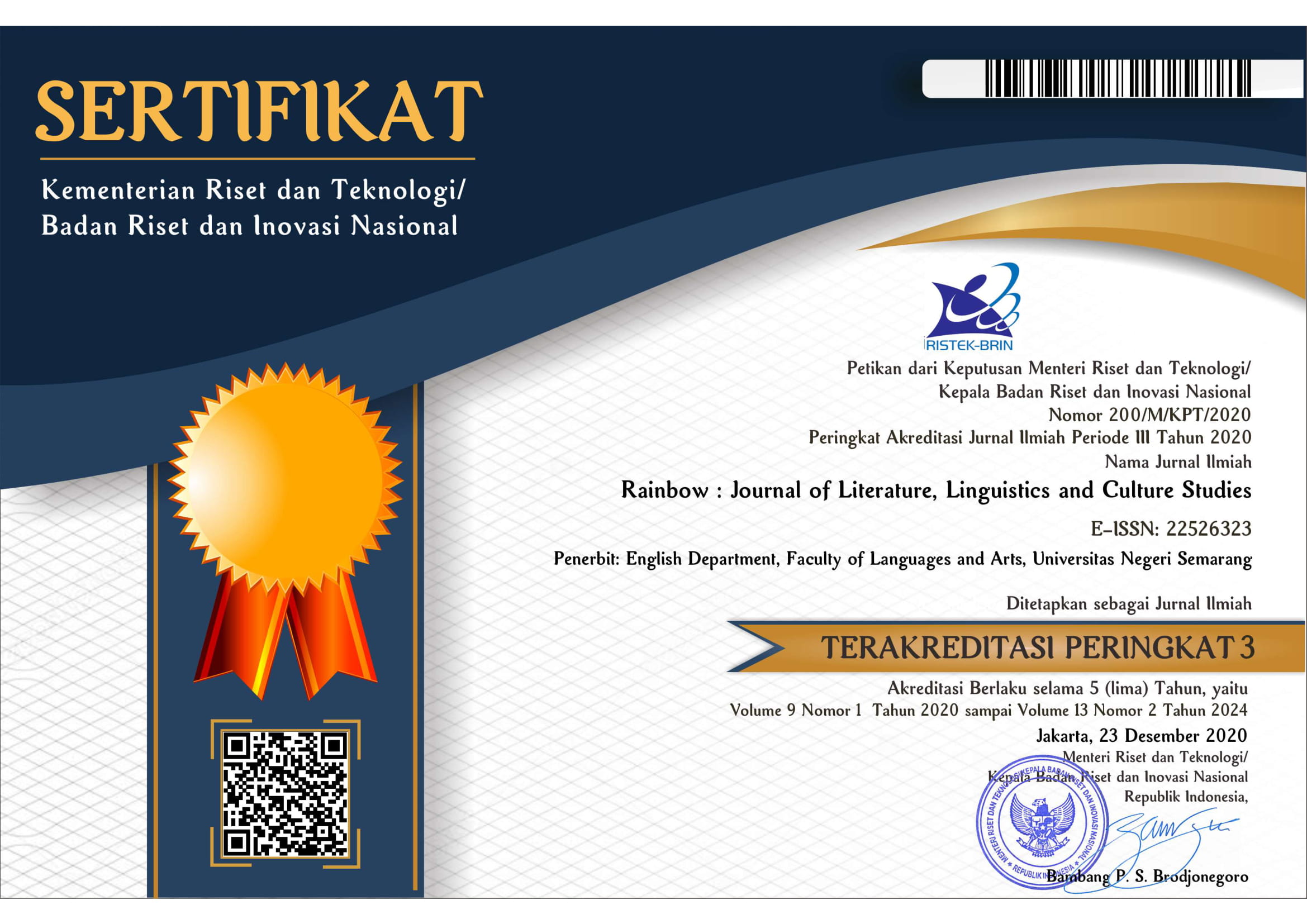NONCONFORMITY AGAINST TYRANNY IN FRANKLE’S DEVIL WEARS PRADA
Abstract
In this globalization era, there are so many changes toward fields of human life. Society is very swift in its instincts and if you do not belong to it, it will resist and sneer at you or quietly drop you. It means that if an individual cannot conform to his surrounding or group, he has to be ready to receive mockery, underestimation, or even rejection. It is the reason why people will conform to the system no matter what and without any appropriate assessment to the system so that they can be accepted in the group. They do not care and do not realize with the impacts that the system may give to their personal lives. Using the media, the capitalists also unconsciously start to create a tyranny where they want to control people around them so that they have power and they will do anything to make their power stable including ignoring the norms and justifying the wrong. People then come to a deeper tyranny system without realizing it unless they empty their mind and reconsider what they have been doing. At this point, society needs someone whom they think “unusual” or “different” to give them a different point of view of their life. Someone who is called nonconformist to make they see something in a different way of thinking and someone who bravely states his view regarding his self-determination. This study is aimed to find how the nonconformist shares his idea to criticize the tyranny system in the world so that his idea is suddenly accepted by the society. The results of this study are as the following: (1) By the comparison among four characters in the same pressure, Andrea preferred to nonconformity although she knew she might lose her dream. On the other hand, Miranda, Emily, and Nigel still stood on the side of conformity because of the idiosyncrasy credits and the goal that they still wanted to reach; power, fame, and material thing. (2) By the analysis of the four characters, Miranda is as the representation of a tyrant who controls, threats, and does something harmful to her leader and her partners to maintain his position. Nigel, Emily, and other workers are as the representation of tyrant’s supporters. Andrea is as the nonconformist to criticize the tyrannical system. The nonconformity behavior in the movie tries to tell the viewers that there is no point if we become tyrant or have a will to get power, fame, or material thing while in fact we do not need them, we just want them. Therefore, this study is expected to make the readers more aware of tyrannical system around us whether it is done clearly or hidden so it will not become worst finally.References
Gagn, M., & E. L. Deci. (2005). Self-determination theory and work motivation. Journal of Organizational Behavior, 26, 331-362.
Russel, Bertrand. History of Western Philosophy and its Connection with Political and Social Circumstances form the Earliest Times to the Present Day. London: George Allen and UNWIN LTD, and its translation by Sigit Jatmiko, dkk. 2007. Sejarah Filsafat Barat dan Kaitannya dengan Kondisi Sosio-Politik dari Zaman Kuno hingga Sekarang. Yogyakarta: Pustaka Pelajar
Kalb, James. 2008. The Tyranny of Liberalism: Understanding and Overcoming Administered Freedom, Inquisitorial Tolerance, and Equality by Command. [accessed 9/3/13] Available at: http://www.firstprinciplesjournal.com/print.aspx?article=1108&..
Handlery, George. 2013. Can Tyranny Survive Capitalism? Available at: http://www.brusselsjournal.com/node/5039 (Accessed 9/3/13)







